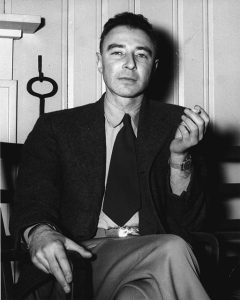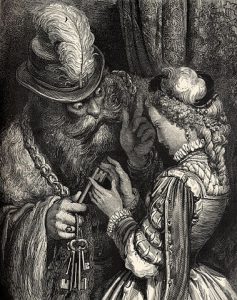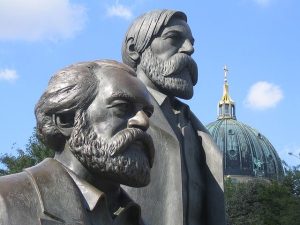Opposing Oppenheimers
Heinar Kipphardt’s In the Matter of J. Robert Oppenheimer recounts the trial of one of the most prominent physicists in history. Oppenheimer, often called the father of the atomic bomb, was summoned before the Atomic Energy Commission in 1954 and interrogated on his loyalty to the United States.
We Didn’t Start the Fire
“Are you one of the good guys?” (McCarthy 282). The father-son odyssey of The Road is consumed by constant searching for food, shelter, or safety. The father is searching for something else, as well, something intangible but just as necessary for a different kind of survival.
Mulvey vs. Carter: The Power of the Gaze
Both Laura Mulvey and Angela Carter are well-noted female writers in the 1970’s that have talked about feminism through their writings. In Mulvey’s famous article “Visual Pleasure and Narrative Cinema,” she talks about how most popular cinema tends to express patriarchal views through various male gazes using the method of psychoanalysis to explain how and why men, both within movies and the viewers, react the way they do.
The Communist Manifesto and its earlier drafts: Further explanation, or simply an ignorance of the truth?
Inspiring a movement is not only a difficult, but a lengthy process. The perfect combination of motivation in the population, necessity for change, as well as belief that a particular movement will improve the peoples’ lives will create the necessary force to drive a revolution.
Voices Rolling in the Deep
In writing Austerlitz, Sebald endeavours to tell a story that, in its scope and controversy, is harrowing to tell. Faced with the barbarism of the Holocaust and the impossible challenge of bringing its victims’ histories back from the dead, he manipulates both language and image to create the time and space in which the character of Austerlitz exists—a character whose journey simulates exactly what Sebald is attempting to do.




